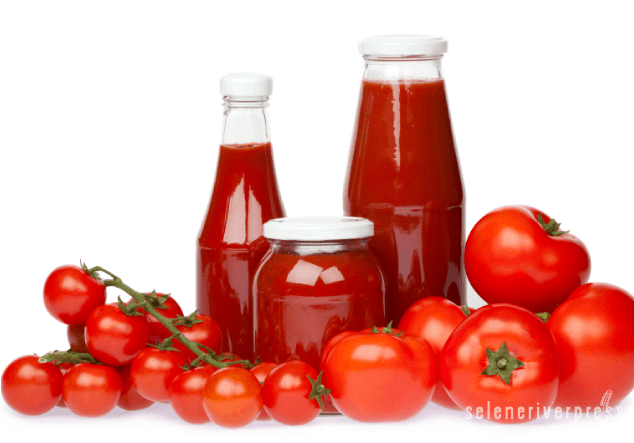Around our house, ketchup is the king of condiments. My husband got hooked when he was in the Navy. Forced to eat the bland food they served on the aircraft carrier, he disguised the powdered eggs with ketchup. My boys adore the sweet, tomato-y flavor it adds to most anything. But for me, it’s just for traditional ketchup-type food like burgers and hot dogs. Either way, we go through our fair share of this food-enhancing elixir, but it ain’t what it used to be.
According to Sally Fallon’s Nourishing Traditions, “ketchup” is derived from ke-tsiap, a word from the Amoy dialect of Chinese that means pickled fish-brine or sauce. This was the original king of condiments. As a fermented sauce, it offered up not only good flavor but also health-promoting benefits for digestion.
As different societies got their hands on the condiment, they adjusted it to their own cultural preferences. Fallon points to the example of the English, who added mushrooms, walnuts, and oysters. It was ultimately us Americans who added the tomatoes, which we’d previously discovered in Mexico. That’s how we created the version we’re all too familiar with today—tomato ketchup.
We used to produce our ketchup in small batches at home using fermentation, which meant we could take advantage of the health benefits it offered. But then it all changed. We switched over to mass production. We started using sugar for preservation, instead of the traditional lactic acid. Ketchup moved even further down the scale of health-promoting foods with the addition of high fructose corn syrup. Still, Heinz claims to sell more than 650 million bottles of ketchup each year. My family is not alone—in the realm of condiments, ketchup obviously reigns supreme.
But since ketchup is such a big part of my family’s eating experience, I make sure I know what’s lurking inside the bottle. I look for brands with organic tomatoes, and I also take Stephanie Selene Anderson’s advice in Put Your Money Where Your Mouth Is! Guide to Healthy Food Shopping to buy either unsweetened or fruit-juice sweetened varieties. While I have tried making my own with some homemade ketchup recipes, I have yet to find one that satisfies the expectations of my family. I won’t give up my search though. Eventually, I plan to ease my family into the fermented ketchup recipe in Nourishing Traditions.
So this Labor Day weekend, don’t forget the ketchup for your backyard cookout. If you don’t make your own, be sure to take a look at the ingredients. And if you do make your own, tell me about your favorite recipe.
Photo from iStock/ZoneCreative S.r.l.



